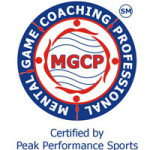The mental aspect of injury may be the most overwhelming component for a tennis player.
Injured players have a multitude of negative thoughts that flood their minds:
- “I was finally on top of my game and now THIS!”
- “Why do these things always happen to me?”
- “How low will my ranking drop?”
- “How long will I be away from competition?”
- “Will I return to form?
- “What if I get re-injured?”
- “Is this the end of my career?”
Even though these negative thoughts are both common and normal, you must learn to manage these thoughts and be mentally ready to handle the unique challenges associated with injury if you are to effectively rehab from injury and successfully return to competition.
There are 3 steps that will help you successfully wade through the challenges of being injured:
Step 1: Understand the potential issues that could arise when injured.
Step 2: Understand there is a grieving process that each athlete goes through when injured.
Step 3: Understand that your response to injury will influence how long your layoff will be and how long it will take to get back up to speed and return to a high level of play.
By arming yourself with positivity and patience, you will return to competition better than ever.
The positivity aspect is knowing that there is some beneficial aspect to injury.
Injury is a tough pill to swallow but it can:
- Provide you a needed break to reignite your enthusiasm for tennis.
- Help to strengthen a weak body part that has held you back in your tennis game.
- Give you the time to improve your mental game.
- Afford you the opportunity to review your past matches to determine what is working for you or holding you back.
The patience component is a bit more difficult. If you recognize, ahead of time, that recovery is a process, it can help reduce the burden. =
Additionally, if you have a goal for rehabbing or improving aspects of your game, you will have greater patience through the injury process.
For example, David Goffin, ranked No. 12 at the time, suffered a freak accident at the 2017 French open.
Goffin injured his ankle when he tripped on the tarp placed at the end of the court behind the baseline while reaching for the ball.
The injury caused Goffin to withdraw from the tournament and forced him to sit out Wimbledon.
Goffin has fought back, improved his tennis game and broke into the Top-10 in the rankings. Just prior to the 2018 French Open, Goffin commented on the mental challenges that he faced due to his injury.
GOFFIN: “When you have an injury, the first moment and the first week when you’re injured it’s kind of – you’re happy because you’re a little bit at home and you have some free time with you family to rest a little bit… then after two weeks all of a sudden you want to come back but you cannot because it’s too early. You start to miss tennis a lot. And as soon as you come back on the court you want to come back as soon as you can but the level is not there, sometimes you’re still feeling your ankle but it’s not 100 per cent, so you have to be patient, and that’s the most difficult thing for the players with injuries, it’s to be patient. And also when you’re 100 per cent, your level isn’t there yet. The key is to be patient.”
Don’t allow injury to defeat you.
Look to stay focused through the rehab and re-entry process.
Not only will you have a stronger body when you return to competition, you will have a stronger mind as well.
Coach Kat’s Power Points:
Just as goal setting is important for hitting performance standards, set goals for rehab.
What do you want to accomplish?
If your goal is strengthening the injured body part, stay focused on your physical therapy without skipping sessions.
If you want to improve your confidence, research confidence-building strategies.
Well-defined rehab goals will help you stay focused on track to improve your overall game… but remember to be patient.




Leave a Reply